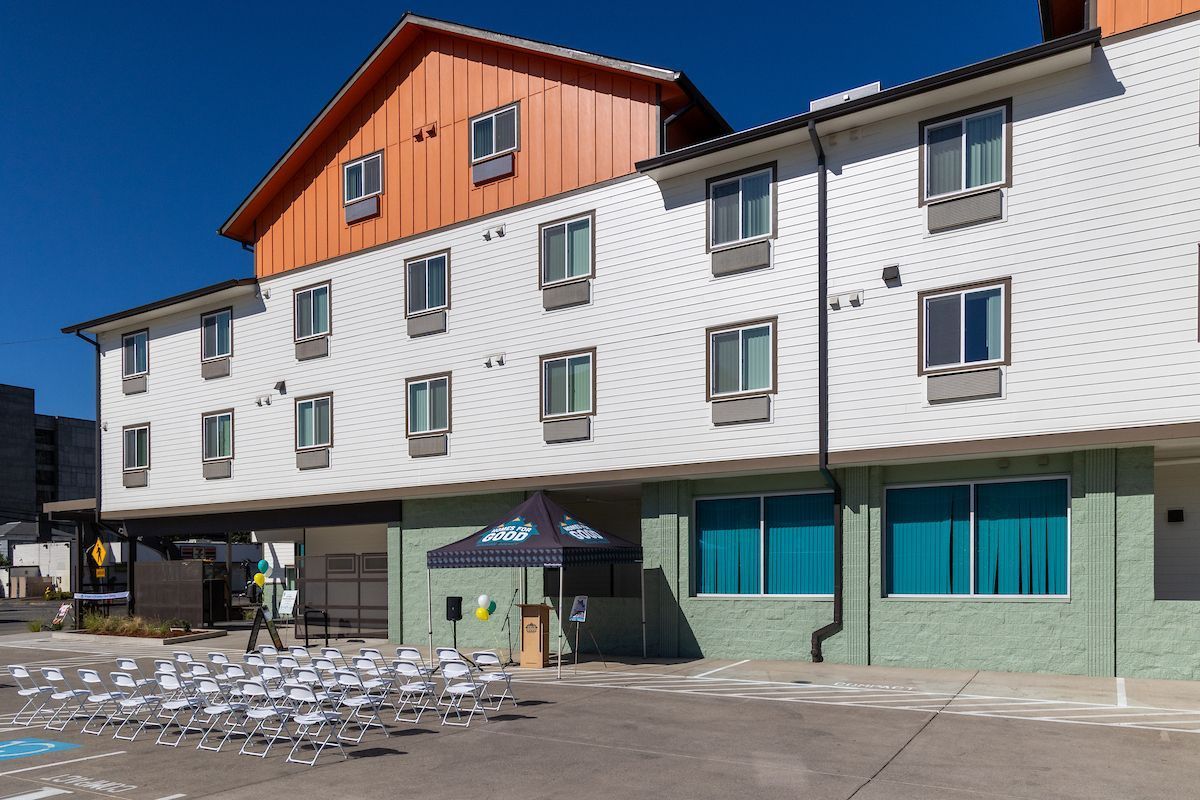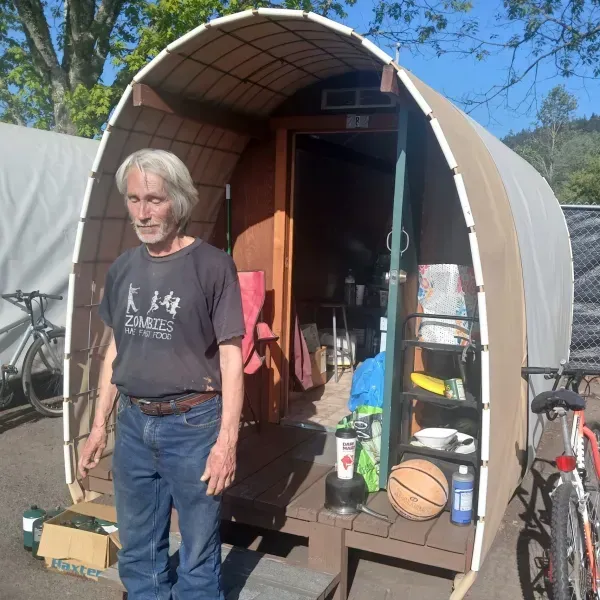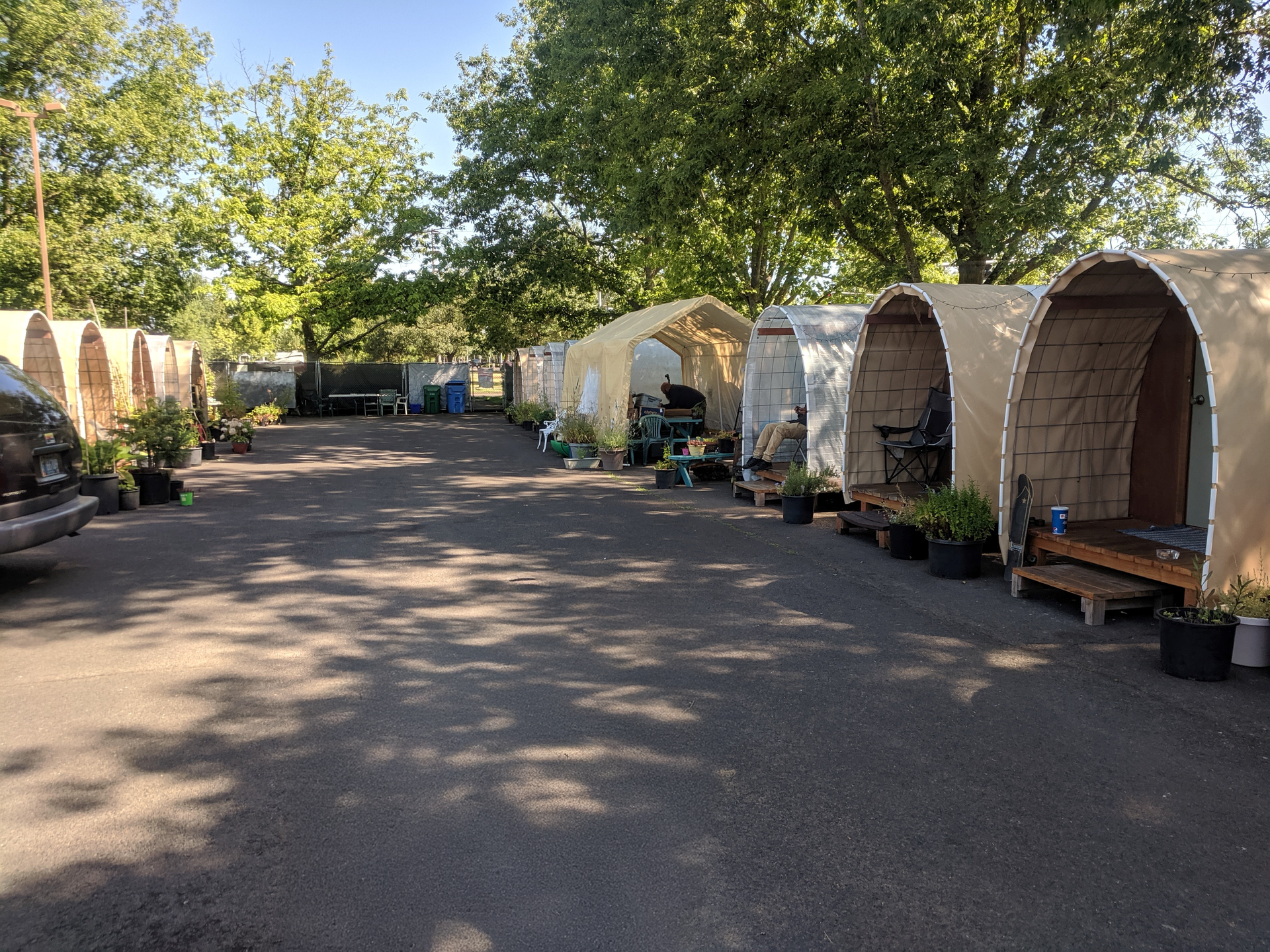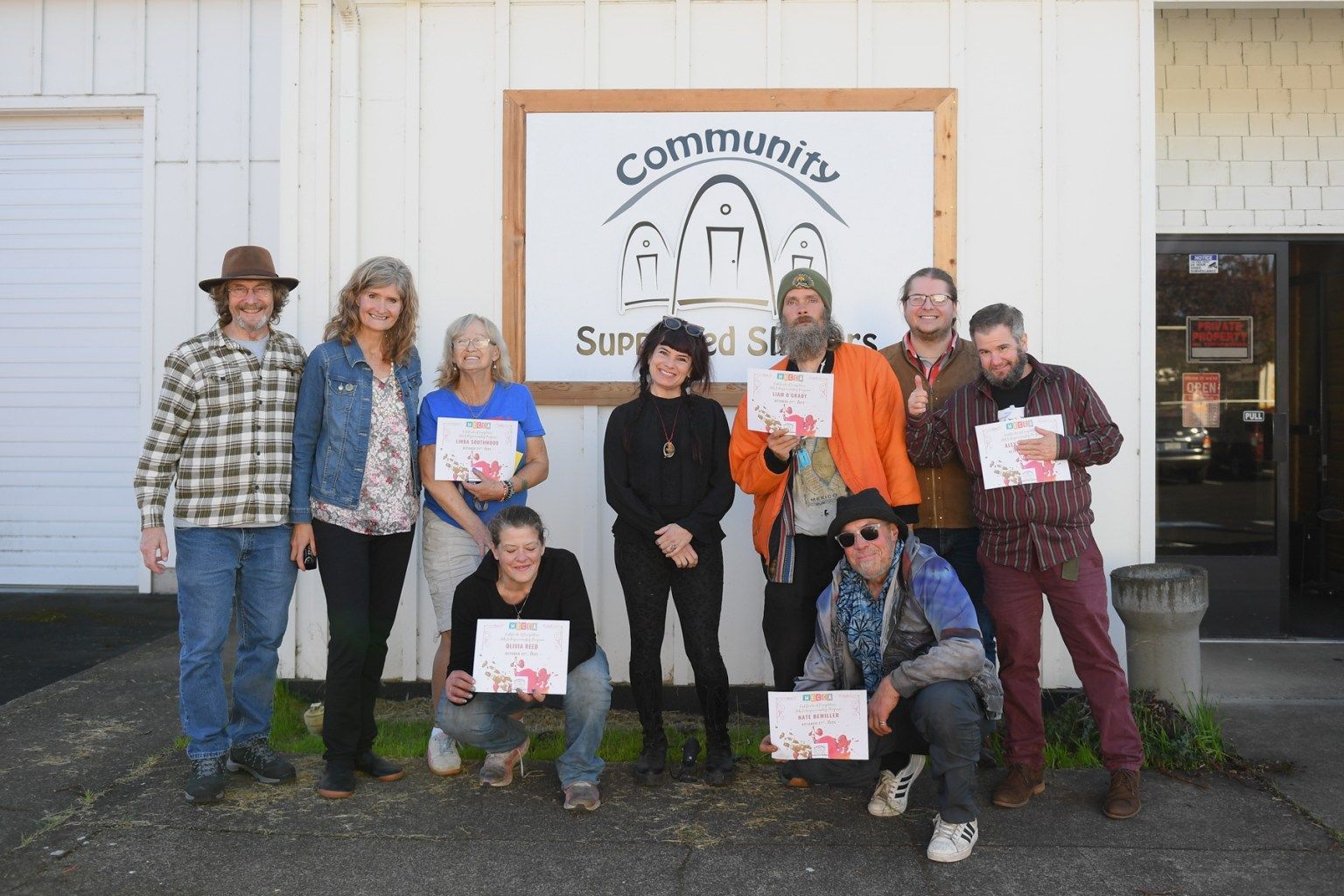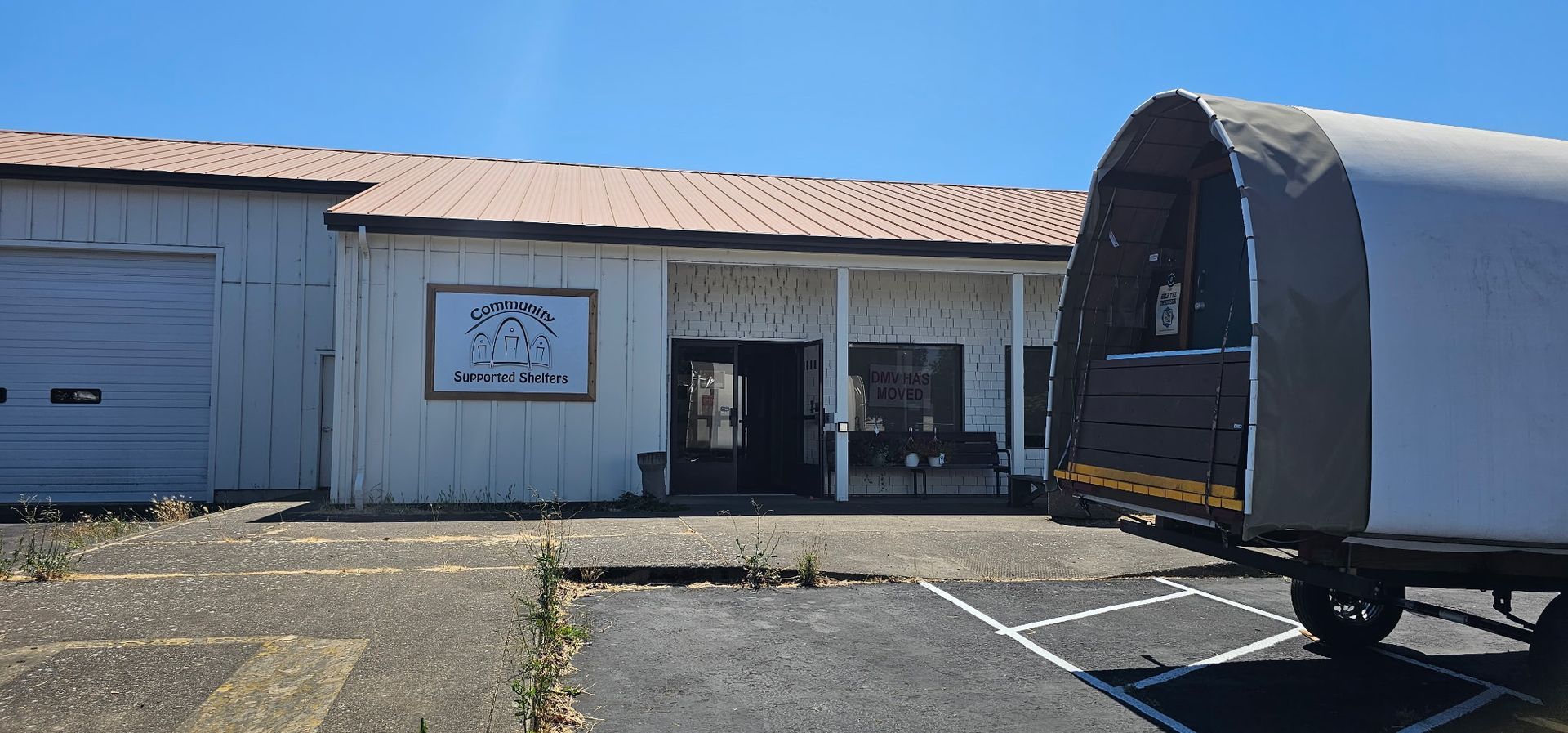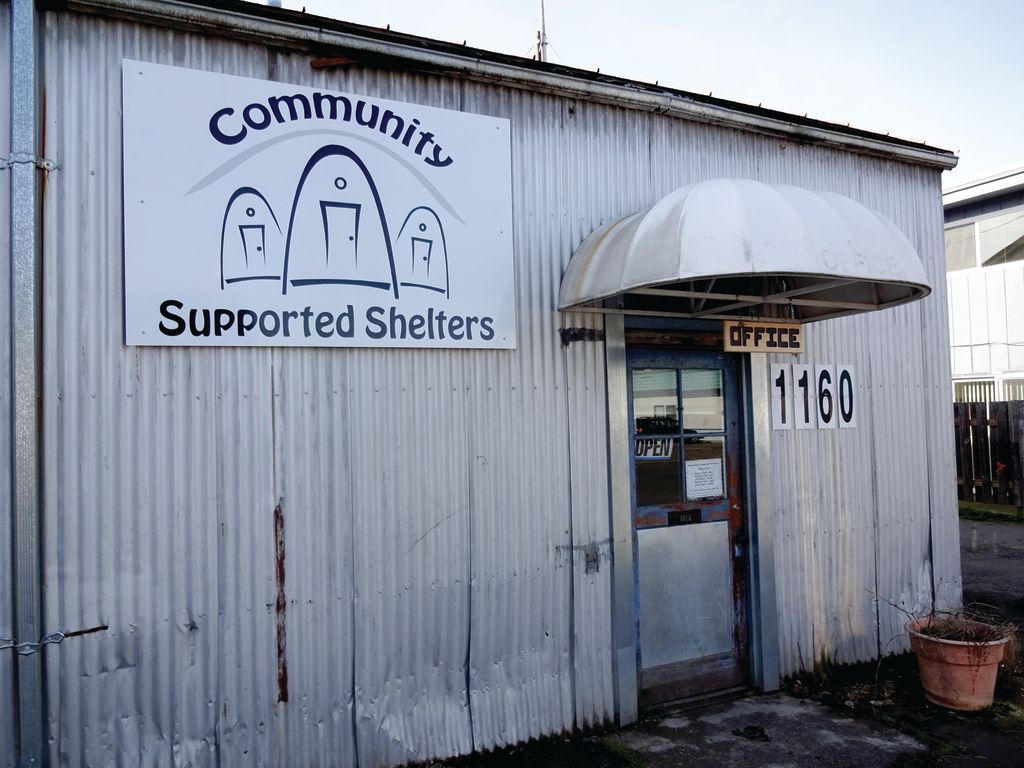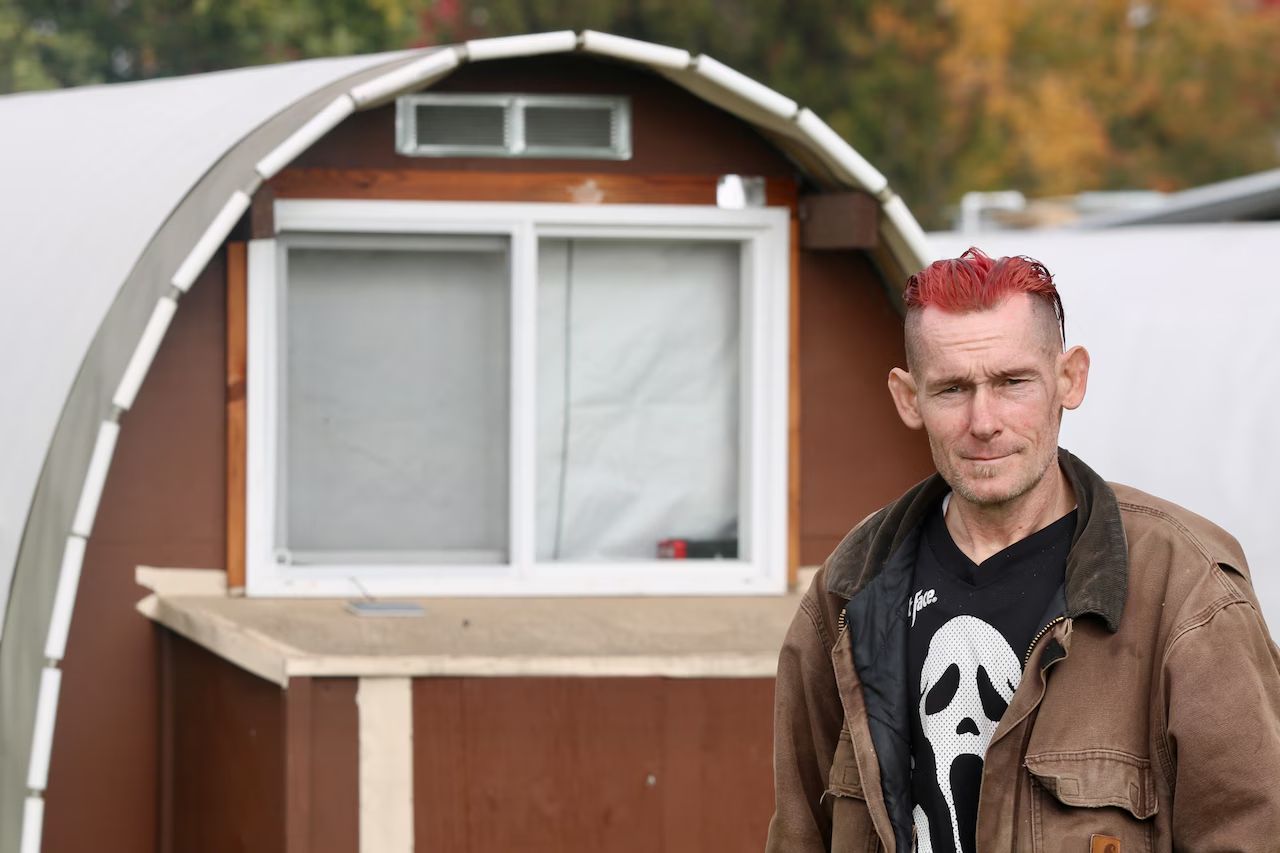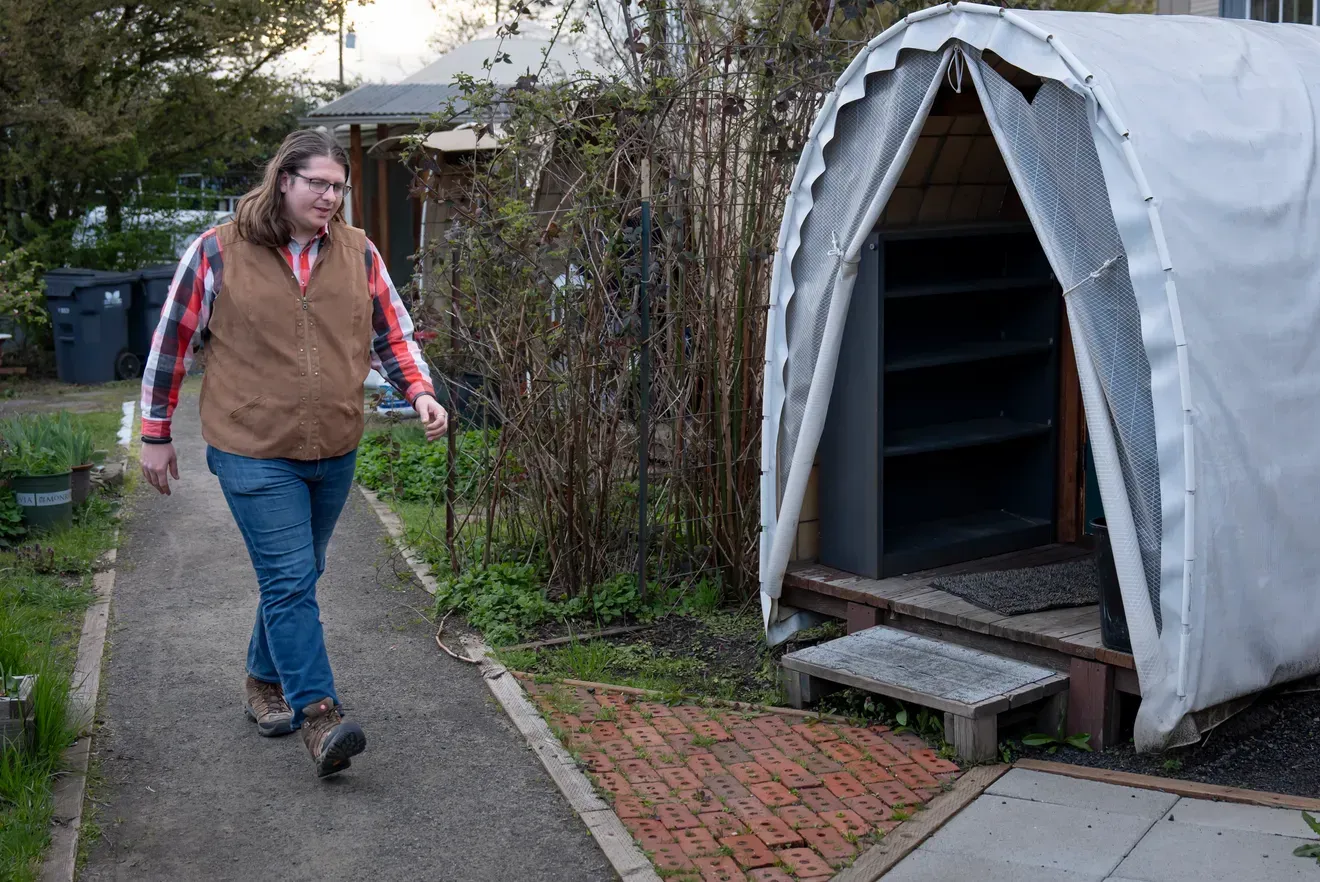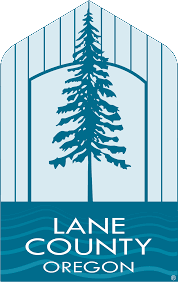Hope & Randal: Love is kind
Nov. 17, 2015
Randal Freman, 34, and Hope Taylor (Freman), 28, lived at Community Supported Shelters Safe Spot Three, at Chambers and NW Expressway, for eleven months. In early November, thanks to ShelterCare, they moved into a 2-bedroom apartment on South Willamette Street. Randal and Hope had an epic journey to finally get to a place of their own.
Hope was born with birth defects and health problems so serious that she was given a 10 percent chance of surviving, and she was the second person ever to be placed on the ECMO heart and lung life-support machine at Primary Children’s Hospital in Salt Lake City. Her mother left her on her grandparent’s doorstep and for much of her life she believed her grandparents were her parents. Her left side has been partly paralyzed and she has had seizures and suffers from osteoporosis, as well anxiety and panic attacks. She married young because she wanted to be “sealed in the temple” with her Mormon husband. They lived in Louisiana. After the birth of her second child, who was born with three holes in her heart, Hope had a breakdown from postpartum depression and was placed in a mental hospital. Her husband had moved another woman into their house and kicked Hope out. A service group, the Assertive Community Treatment Team, “found” her in the hospital, helped her get disability, and placed her in a shelter for battered women. When her Utah family found out, they came and got her and set her up in a Mormon “singles ward” in Salt Lake.
Randal was raised as a Southern Baptist in Wichita Falls, Texas. When he was ten, his family—his mother, step-father, sister, brother-in-law, and him—set out hitchhiking from Wichita Falls to Denver, walking the first 80 miles to Quanah, Texas. They ended up in Salt Lake City because they slept through their planned stop in Cortez, Colorado, and didn’t wake up until they were in Utah. He lived in Salt Lake on and off for 20 years. He had certifications in computer technology and ran his own computer repair business. He had six kids with his common-law wife, but when he was 29, she left him and took the kids. About the same time, his mother died. Even before then, he says, his life was “kind of crap for a long time.” But after those setbacks, “I just didn’t want to feel anything anymore,” he says, “so I started doing meth.” He became severely addicted and lived in a homeless shelter for about three years. In late 2013, he entered a recovery program at The Rescue Mission of Salt Lake.
In early 2014, Hope and Randal met online through a website called Meetme.com. Randal says he loved her smile in the photo on the site. They built a relationship online and by texting, which was breaking the rules for Randal, who was not supposed to have a cell phone. At this time, Hope’s family was pressuring her to embrace Mormonism again and a friend virtually held her captive for periods of time while claiming to protect her. Randal kept urging her to meet with him in person. She would agree and then back out.
Finally, in late May 2014, they agreed to meet at the downtown library. She sent a text, saying she was coming. Then she called to say she wasn’t. Then another call—asking what floor he was on.
Randal: So she sits down across from me and I’m so happy. I’m giddy. I really like this girl. I like her attitude. I like her behavior. I like the way she talks
Hope: He sees the look on my face and he asks, “What’s wrong?” And the tears just poured out.
Randal: And I had to walk over. I was trying to give her comfort, and the moment her hand touched mine, I was like—I really want to be with this girl. We’ve been pretty much inseparable ever since.
They were both breaking somebody’s rules by seeing each other. Hope’s family disapproved of her dating a non-Mormon. Randal was not supposed to be dating anybody while in the recovery program. They sometimes talked on the phone until three or four in the morning, Randal staying on the line after Hope had fallen asleep: “He would listen to me sleep,” she says. He was put on nine-day lockdown after he stayed out all night to be with her.
When he got out of lockdown, they moved out of their respective places and went to live with friends of Randal’s from his drug-using days, but that didn’t last long as the “friends” tried to scheme Hope out of her social security money. By this time, it was summer, so they got a tent and lived in the mountains.
A friend of Randal’s convinced them that Oregon would be a good place to go because the cost of living was so much lower than in Salt Lake. They picked Eugene by a random search of the map— “and the name was cool,” Randal says. Their friend paid for their tickets.
When they arrived in Eugene in early September 2014, they bought a tent, sleeping bags, and a generator and set up camp in a field off Highway 99 near Four Corners, where other people were camping and they were told it was okay. After about a week, the police came and told them to leave. So, they put all their stuff in storage and went to the Mission. The Mission was tough for both of them, with Hope’s anxiety around people and the enforced separation between them for all but eight hours a day. “We had to sneak around to Ninkasi Brewery to hug and kiss goodnight,” Hope says.
They had heard about Community Supported Shelters from friends and moved into Safe Spot Three shortly after it opened last December. Soon, Randal began serving as assistant manager and is now the on-site manager. They were married by Reverend Bob Chambers of Triple Cross Motorcycle Ministry on January 28, right outside the gates of the camp, but they are still not legally married because Hope had all her legal papers, including her divorce decree, stolen. They hope to have that resolved soon and she will then legally take Randal’s last name.
While they were in the Mission, Randal taught Hope to make bracelets using macramé knots (“I replaced my addiction to methamphetamines with an addiction to crafts and God,” he says.) to help her cope with her anxiety. It works so well, she says, she can’t stop making them. She hopes to start selling them and has made initial attempts through Craigslist and the CSS office.
Randal works part-time for Bigfoot PCS as a field technician, working with computers again. He has remained drug-free since he first entered the recovery program in Salt Lake 26 months ago. He recently called his counselor from that program, which he left abruptly, to thank him and tell him he is still clean.
Hope has been cut off from any contact with her children by her ex-husband but she keeps track of them through Facebook. She also recently connected with her grandmother and another relative through Facebook, which she says has helped her to piece together the story of her past, which has been distorted by her memory problems and lies she was told by her family.
She struggles sometimes to get the help she needs. Recently when she was trying to set up her health insurance, she says, someone at a social service agency treated her like she’s “little,” she says, “and my family already tells me I’m a five-year-old. So I’m afraid to go back. But I need to.”
The camp can be stressful, too, she says, because there are so many people. She has made some friends, but it’s hard because of people coming and going. She does feel a sense of growth since she’s been there. “I can ride the bus by myself, without my music, now. The smallest sounds would scare me. People talking would scare me and send me into a panic attack. It still kinda does but it’s a lot better.”
Randal says that living in the Safe Spot has helped him find direction in his life. “It’s helped me and Hope in so many ways,” he says. “It’s given us a sense of community. We feel like we’re contributing to a micro-community within the camp. Looking out for each other, and working together.” He feels he’s found a calling in life, to help people who are homeless and he hopes to contribute to the camp after he and Hope find housing, through participating in Bible studies, which have been held just outside the camp, and by preparing food for residents.
Now that their time in the camp has led them to find housing, Randal had this message for Erik (director of programs) and Fay de Buhr (director of operations) and everyone involved with CSS: “Hope and I would like to thank you from the bottom of our hearts for all that you have done for us both as regular campers and as volunteer staff and for all that we have learned during our time with this organization. You guys make a major difference in people’s lives and don’t let anybody tell you different.”
Recalling a passage from the Bible (1 Corinthians 13) that was read during their wedding, Randall says, “Being a site manager for Erik and Fay at Safe Spot Three has taught me the true meaning of ‘Love is patient; love is kind.’”
News & Events
To stay connected to CSS, subscribe to our quarterly newsletter. If you are a member of the media who is seeking info, contact
community@cssoregon.org.
